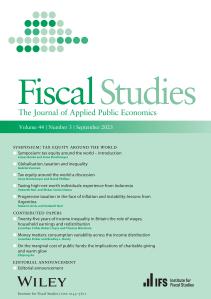Slow growth over the last decade has prompted policy attention towards increasing R&D spending, often via the tax system. We examine the impact of R&D on firm performance, both by the firm's own investments and through positive (and negative) spillovers from other firms. We analyse panel data on US firms over the last three decades, and allow for time‐varying spillovers in both technology space (knowledge spillover) and product market space (product market rivalry). We show that the magnitude of R&D spillovers remains as large in the second decade of the 21st century as it was in the mid 1980s. Since the ratio of the social return to the private return to R&D is about four to one, this implies that there remains a strong case for public support of R&D. Positive spillovers appeared to temporarily increase in the 1995–2004 digital technology boom. We also show how these micro estimates relate to estimates from the endogenous growth literature and give some suggestions for future work.









